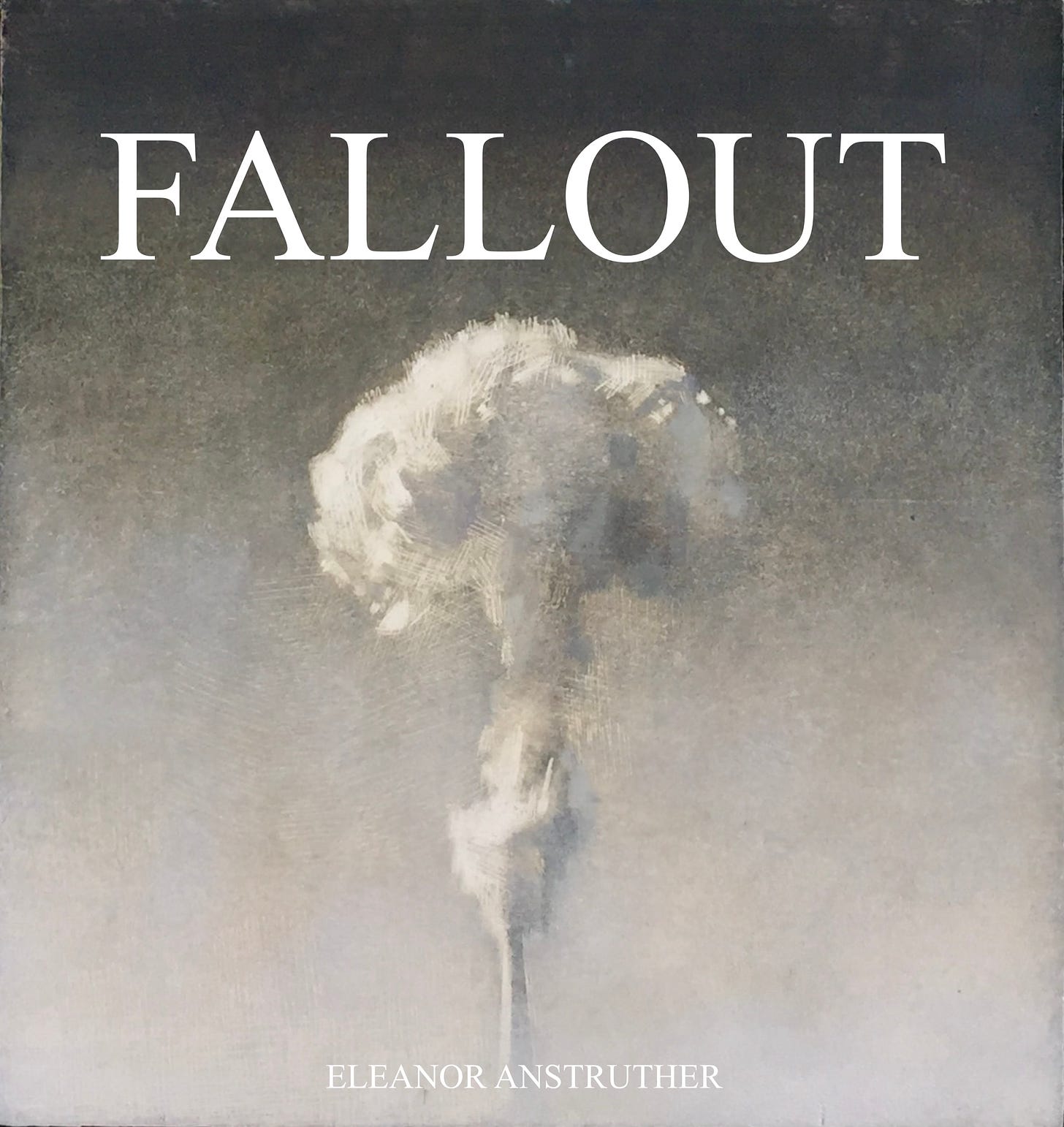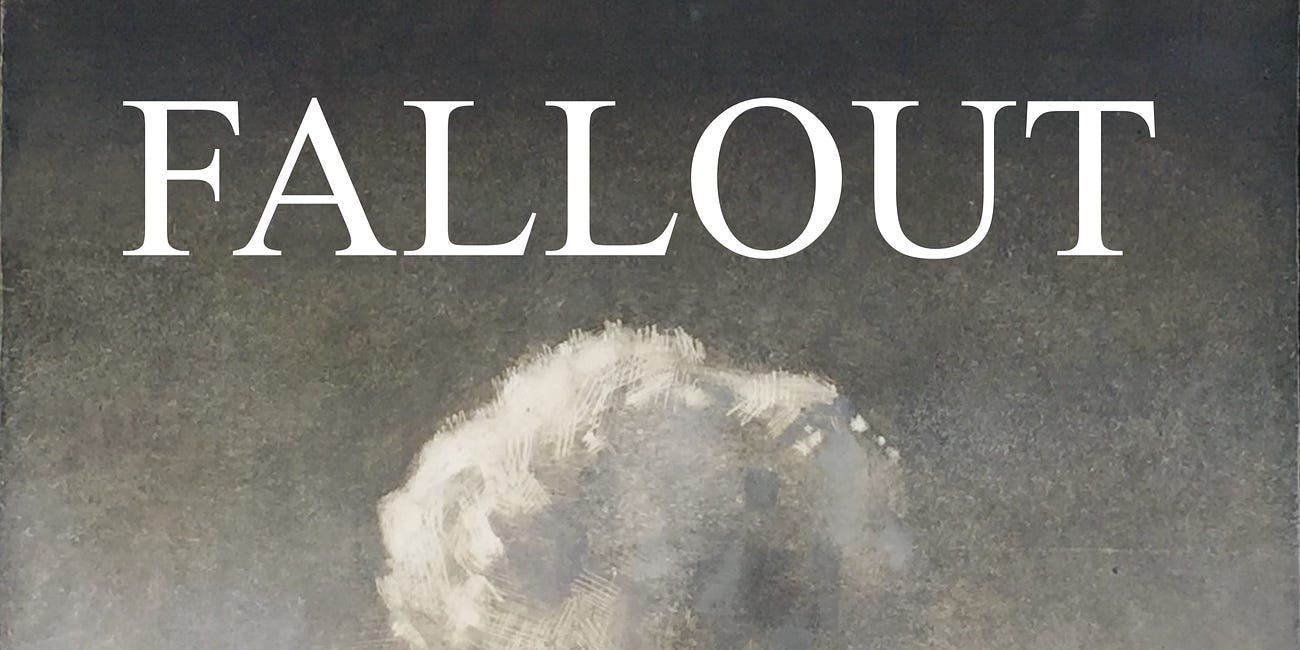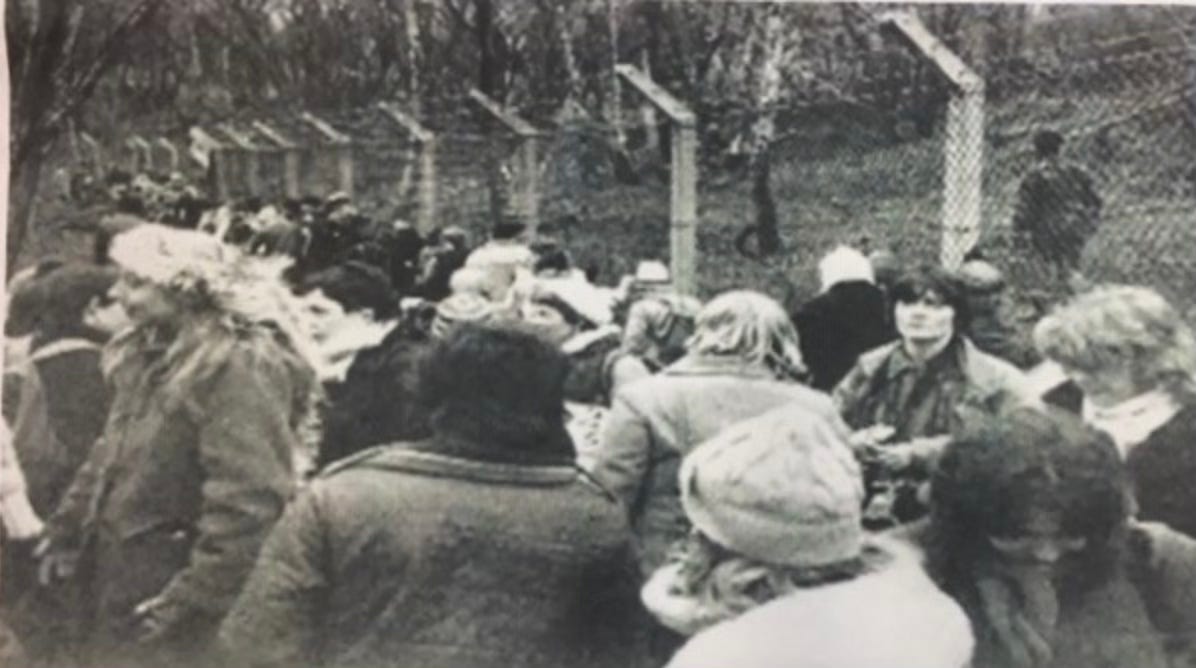Outside the high school walls, Annabel was glad to be invisible. Never whistled at by builders, no stray hand on the bus, the butcher never calling her, Darling. That was fine. She was happy to have a secret understood by her mice, dreamt of by her; imagined trysts in the stationary cupboard, a frantic kiss pushed up against the gym bars, if only they were true sometimes, even once.
In her queen-size bed, bought after a determined fight with her landlord who objected to a single girl refusing a single mattress, and fitted into her small bedroom after a determined fight with the doorframe, she would slip her hand between her legs, the mice safely locked away, and fantasise of a new teacher arriving, a swathe of brown hair tumbling, one look that would tell her she’d fallen in love with mousey Miss Jenkins and was soon to discover that beneath the corduroy she wasn’t so mousey after all, that within those simple shirts beat a heart on fire, as red as her hair, her cheeks, her nose on a cold December day. She imagined looks exchanged on playground duty, a fumbling when one of them dared, the school quiet, the lights out in the halls, Annabel working late.
These hot nights kept her going and she’d go into school with her fantasies close to her chest, held within her pale yellow shirt and put up with the Geography teacher telling her, as they monitored screaming children in a game of British Bulldog, that she shouldn’t be so stiff, the handyman would make a nice husband if only she’d lower her sights. She’d put up with the rolling eyes and little asides in the staffroom, the gossip she was excluded from and when they went off to the pub to drown their teacher sorrows, the Lady Di’s giggling, the matrons happy with a sherry, all of them accepting the wandering hands as if to be touched uninvited was a compliment. She’d put up with the knowledge that they’d all conclude, after she finished her gin and tonic and said goodbye and left them to it, that what that Miss Jenkins needed, if she wasn’t to become a “lezza”, was a right good seeing to. She’d run, almost, home to her mice, tear open her plain teacher’s shirt, tell them she felt strangled, let them nibble the buttons. She put up with it all for the knowledge that her choice was to know she was different and not pretend otherwise.
At the fire, her face hot, her back cold, she looked vaguely for Bridget, searching the faces of women like her and not like her, women of every stripe if not colour, women pierced and women dowdy, women shaved and women not hiding the lines around their mouth. Not an inch of makeup, no hair styles that required spray, nothing about these women screamed, Pick me, as they did in the classroom, on the high street, on telly where all they were told was important was men.
When she’d first come to Greenham and seen it in the snow, she’d put down her bag that she’d packed only for an afternoon, and asked if there was somewhere she could sleep. Its majesty had swamped her, this gathering of women, she’d been unprepared. Back then there’d been only one camp and men had still been allowed. A woman had lent her a sleeping bag and offered to share her tent.
Other camps had sprung up at other gates and Annabel had gravitated to Green Gate, where the women wove dream catchers into the branches of trees and discussed the cosmic beauty of menstruation. Men had been banned from staying overnight but were still allowed to visit during the day at other gates, but not at Green. At Green Gate there were none. Ever. No exceptions. It felt safe, like she could be herself ,and she made the journey from Surbiton to Newbury, walking the last miles, her bag on her shoulder, whenever term allowed; easter, the summer holidays, sometimes on a Saturday. She was secretly grateful to Maggie. Without Maggie deciding what the world needed was American nuclear warheads pointed at Russia there’d have been no Greenham Common Peace Camp and no Green Gate and no beautiful women who were the same as Annabel and beautiful women who weren’t and beautiful women who didn’t care what you were, who didn’t shame, who didn’t assume she was lonely because no man wanted her. She didn’t want the missiles to come, of course she didn’t. But didn’t she want Greenham to end, not ever.
Whistles were going up, there was cheering, and everyone was moving to the fence. She stood among her sisters, their voices entwined, their arms linked, embracing the base that was built to store the nuclear warheads sent to kill them. The rush of success cleared her head from worry about Bridget, it was still early, sort of, she was sure she’d find her, it wasn’t as if she could have gone far. She sang till her heart was thumping with the passion of it, songs that warmed her and songs that made her cry, Annabel among thousands of women, a circle of words that had become a second language on her lips, songs of defiance and grief.
The keening women arrived in black to drown them in wailing, their own grief a jagged rip through the air as women who’d never heard them before exchanged glances. At gone three o’clock, as the winter light began to fade, she saw Kate and Peggy emerge out of the crowds.
“We did it!” Kate hugged her.
“Where’s Bridget?’
“We left her at Blue Gate, she said she wanted to turn back. We walked the whole fence.” Kate had lost her headscarf. Brown hair tangled. The bottom of her jeans caked in mud.
“I just don’t see the point,” said Peggy. They’d been in mid conversation. Peggy stuck her hands in the pockets of her jeans.
“Peg doesn’t want to go back to school.”
“You said this was the best education I could have.”
“Simon said this would happen,” said Kate to Annabel. To her daughter she said, “and what about the girls? I can’t leave them.”
“You go back,” said Peggy, sitting down on a log.
“She’s all fired up,” said Kate.
“I expect Bridget’s the same,” said Annabel looking behind her.
She left Kate and Peggy caught up in a riot of women whose singing and swaying had taken a grip on the fence and were trying to pull it down. She walked away from the roar of their voices, up and down another stretch of fence, half a mile in either direction. She returned and checked the art tent where donations for making banners made a pile of cloths and pens and sewing kits on a table, protected by the weather by tarpaulin that flapped and draped and dripped, that made pools of water that had to be emptied so they didn’t cascade down your back. But there was no sign of Bridget anywhere.







Yikes, where is Bridget…
Lost souls and simultaneous discoveries; the beauty of being human set against the wire fencing and spiky politics of the time. Page-turning fiction
Inside women's hearts and souls and dreams, hopes, the self discovered, reality of what men may do and men may be permitted to do, courage dashed and renewed in the face of impending disaster and the fear of the loss of one, now their own . So moving, Eleanor.